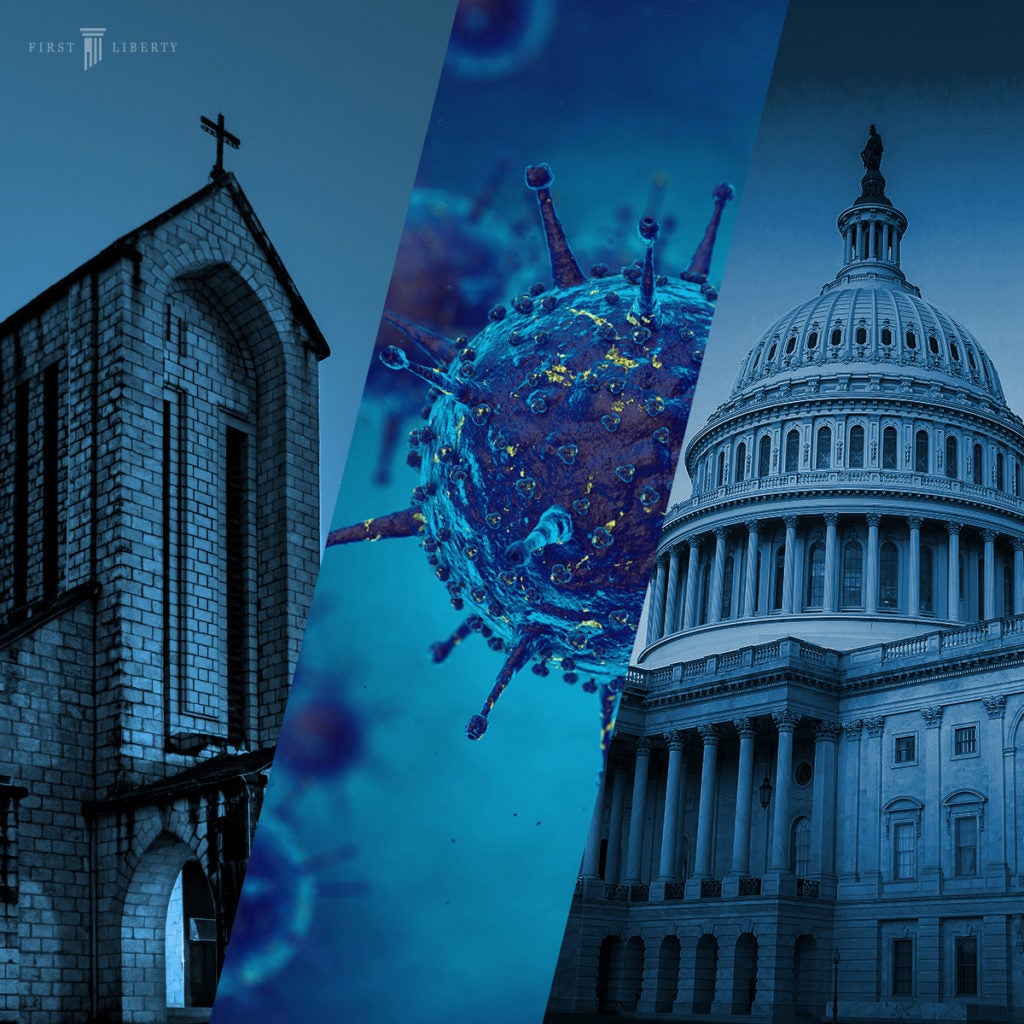First Liberty Institute, Kentucky AG Ask U.S. Supreme Court to Allow In-Person Classes at Faith-Based K-12 Schools
Attorneys urge Court to reverse decision by U.S. Court of Appeals for the Sixth Circuit preventing religious schools from holding in-person classes
First Liberty Institute and Kentucky Attorney General Daniel Cameron today filed an application with the Supreme Court of the United States urging it to vacate an order from a panel of the U.S. Court of Appeals for the Sixth Circuit. The order stayed a preliminary injunction entered against Kentucky Governor Andy Beshear’s executive order that prohibits private religious schools and other schools from holding in-person classes for grades K-12. First Liberty represents Danville Christian Academy (“DCA”) in Danville, Kentucky in the lawsuit.
You can read the application here.
“As a result of the appellate panel’s order, Kentucky students can catch a matinee at the movie theater, attend a wedding, go bowling, work out at the gym, or go shopping, or even attend in-person classes at a preschool or college, but they cannot attend an in-person class at a K-12 religious school,” said Roger Byron, Senior Counsel at First Liberty. “Even gambling parlors are still open and in-person. The decision is inconsistent with Supreme Court precedent and the precedent of the Sixth Circuit, including a Supreme Court order issued just last week that protects in-person religious gatherings.”
On November 18, 2020, Governor Andrew Beshear ordered all “public and private elementary, middle, and high schools,” including religious schools, to cease in-person instruction, while allowing other activities with comparable health risks such as theaters, weddings, bowling alleys, and offices, to remain in-person with restrictions. Pre-schools, universities, and colleges are also permitted to hold in-person instruction. On November 25, the district court granted a preliminary injunction prohibiting the Governor “from enforcing the prohibition on in-person instruction with respect to any religious private school in Kentucky that adheres to applicable social distancing and hygiene guidelines.” Over the weekend, a panel of the Sixth Circuit stayed the district court’s injunction, allowing the Governor’s order to take effect.
In its Application to Vacate the Sixth Circuit’s Stay of the Preliminary Injunction, filed with Associate Justice Brett Kavanaugh, First Liberty attorneys argue, “The Sixth Circuit’s published order green-lights a hands-off approach to severe COVID-19 restrictions—here, the closure of all religious schools in a state—that fails to live up to the judiciary’s ‘duty to conduct a serious examination of the need for…drastic measure[s]’ that burden religious exercise.” They added, “Earlier this year, [the Supreme Court] emphasized the centrality of religious education to religious exercise. ‘Religious education is vital to many faiths in the United States.’ As a result, operating a private religious school is not a distinct venture that can be separated from worship or other aspects of religious exercise. The First Amendment protects religious schooling just as it does worship services because, for many believers, those are simply two facets of fulfilling the obligations of their faith.”
Earlier this year, in Tabernacle Baptist Church v. Beshear, First Liberty successfully challenged Governor Beshear’s order prohibiting in-person religious services in Kentucky.
Give Today to Help Us Fight & Win for Our Most Essential Freedom in the Courtroom
First Liberty Institute is a nonprofit, charitable organization under section 501(c)(3) of the Internal Revenue Code. It does not endorse or participate in any campaign activity for or against political candidates, and does not partake in any activity to influence legislation.
First Liberty conducts research and provides analysis on the effects of policy actions on religious liberty. This publication is intended to be used for informational, educational and reference purposes only.










